Abstract
Surveys of arbovirus activity in Fiji were conducted over a 10-year period from December 1959 to December 1969. No arboviruses were isolated from over 200,000 mosquitoes, 9000 ticks, or 575 serum samples. Eight thousand human and 1117 bird, bat and animal sera were tested for haemagglutination-inhibiting arbovirus antibody using a variety of group A, group B and Bunyamwera group antigens. Only a small number of low-titre reactions were found among the non-human sera, but 14% of all human sera were found to contain Group B antibody. The antibody prevalence increased with increasing age, from less than 1% for persons born since 1950, to 70% for persons born before 1900. The age differences in prevalence could be used to estimate the time and size of previous epidemics. Differences were found in antibody prevalence between the sexes, between ethnic groups and between persons from different regions. These differences could be explained in terms of climate, location and custom.
Historical and serological evidence both suggest that all the antibody detected was due to past exposure to dengue virus. The very high proportion of the population with no dengue antibody makes Fiji a high-risk area for a further dengue epidemic. Dengue virus is known to be active in the Pacific and South-East Asia.
Full text
PDF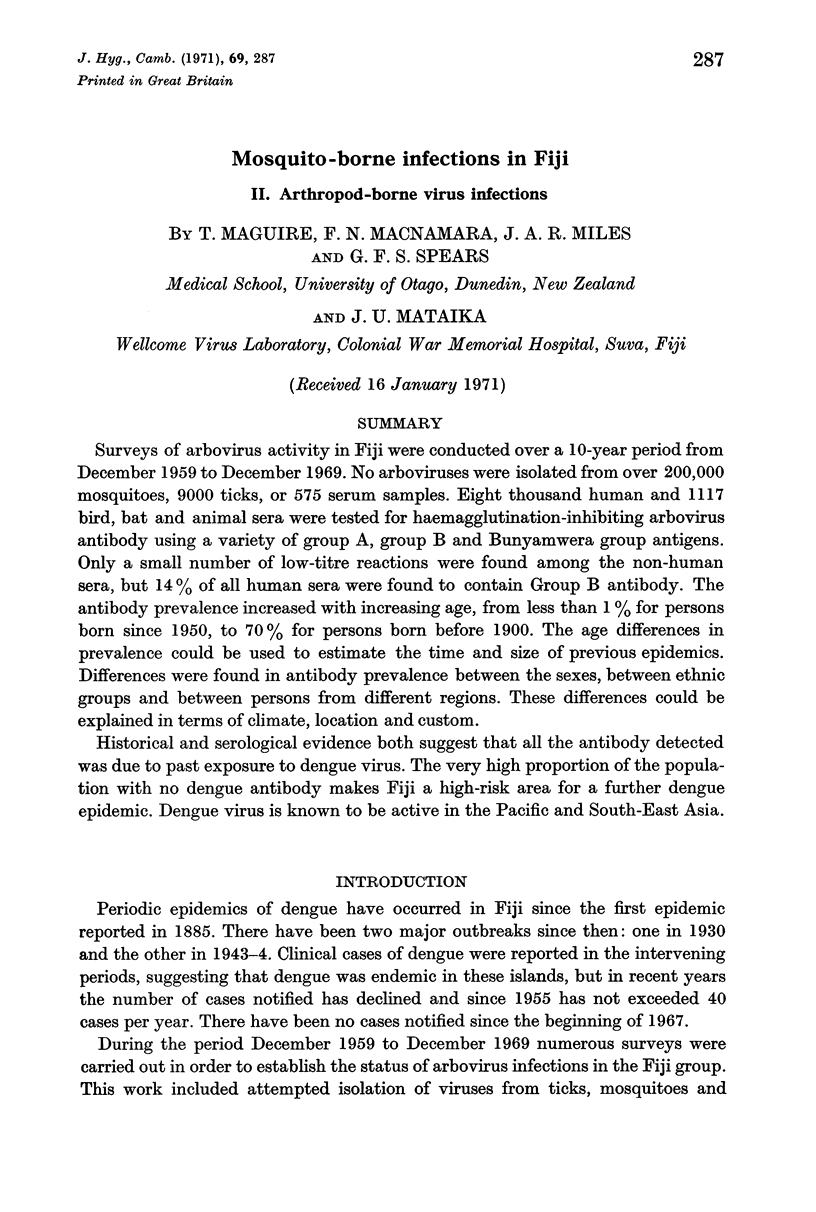
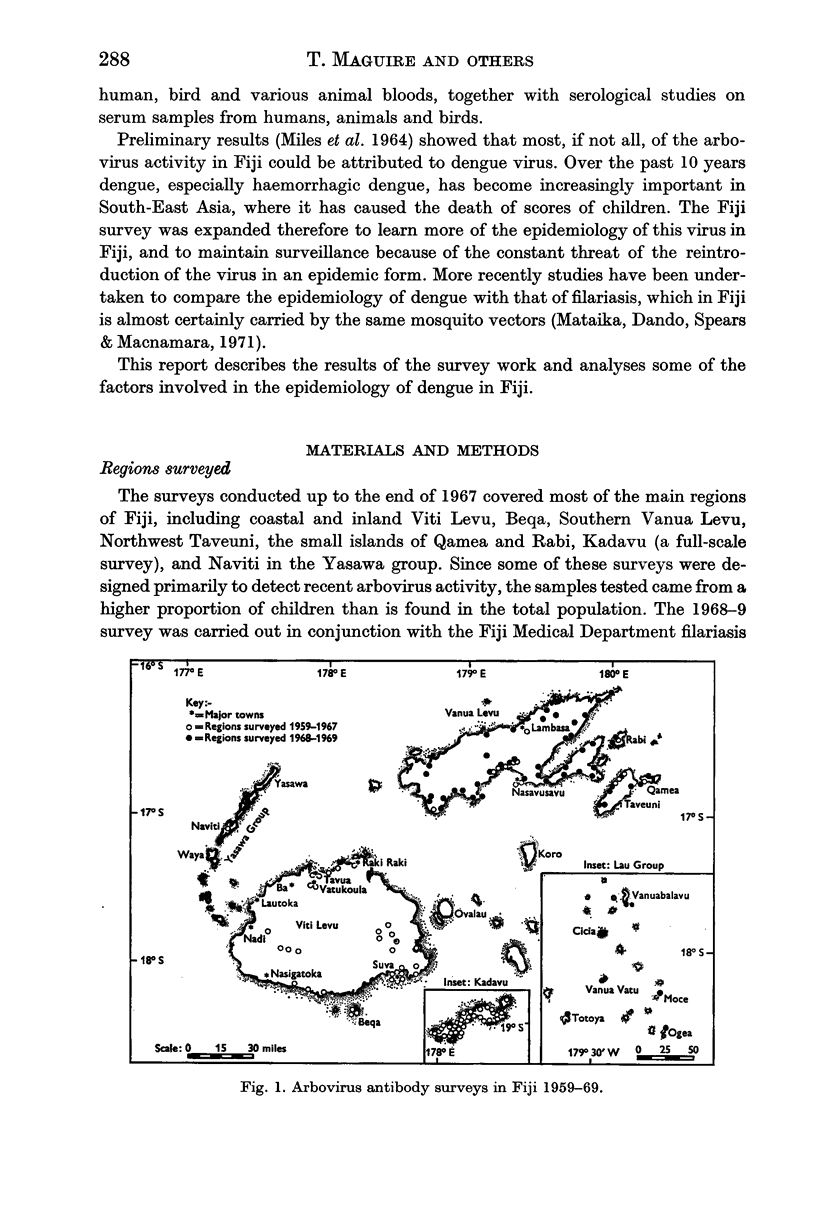
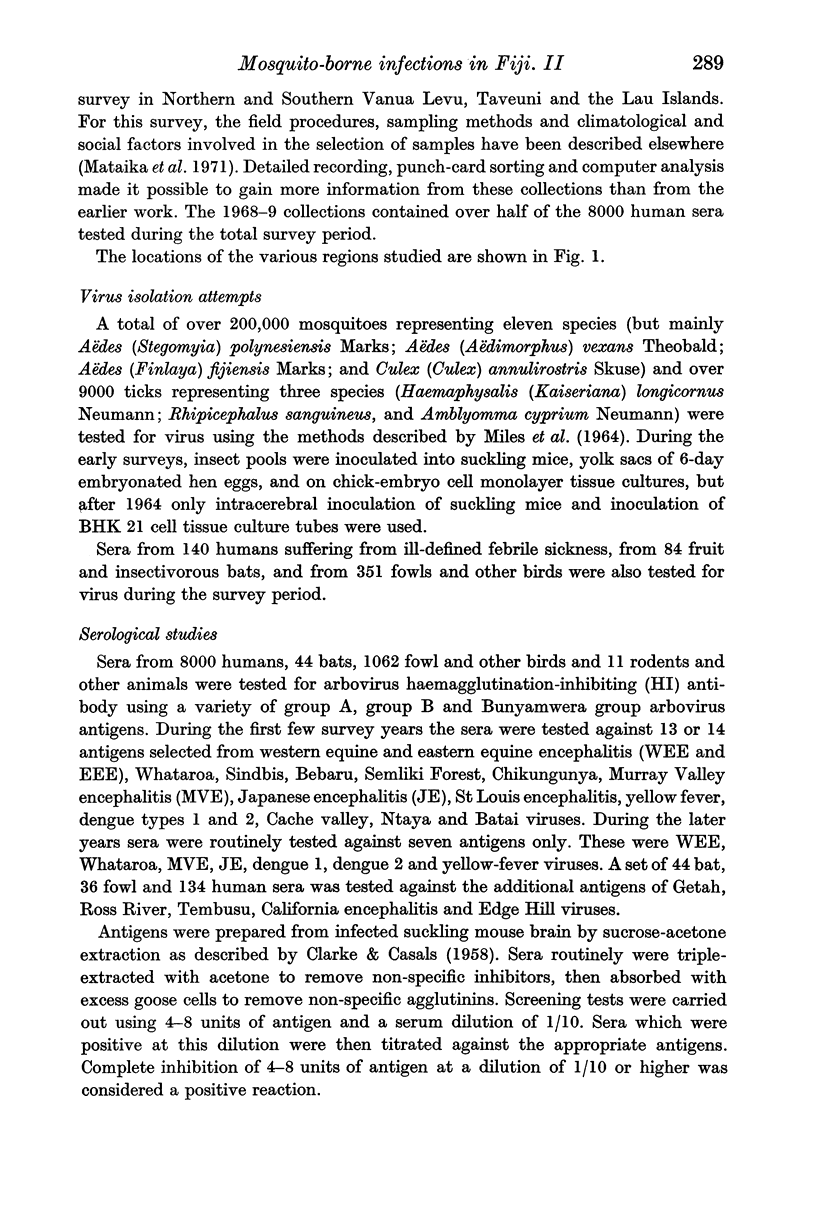
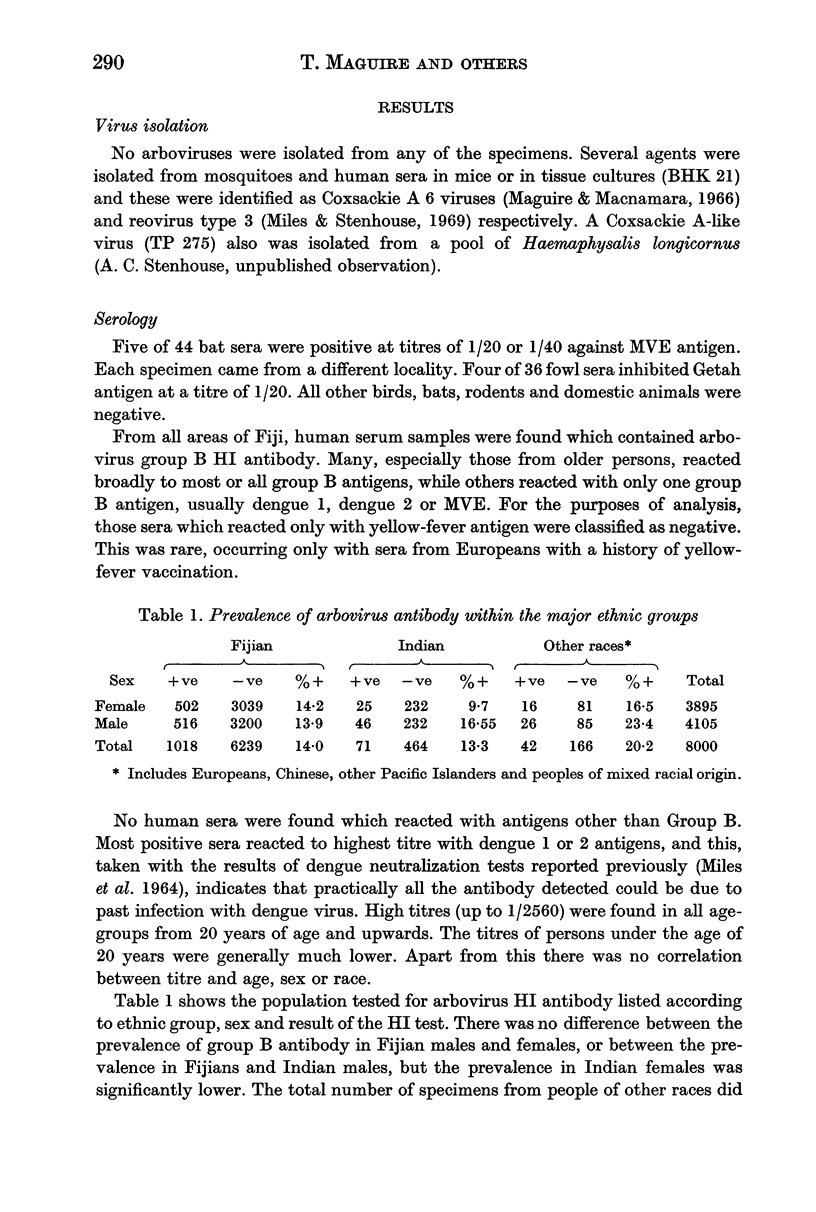
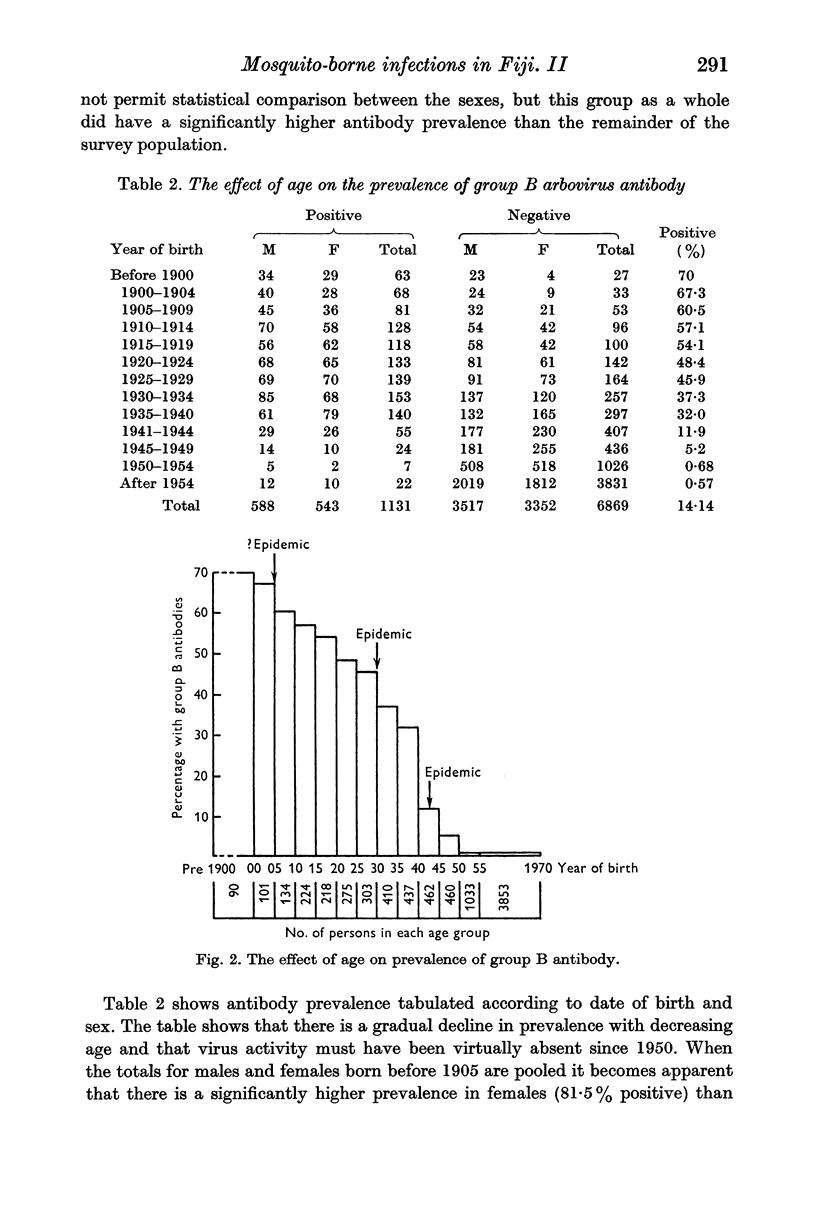
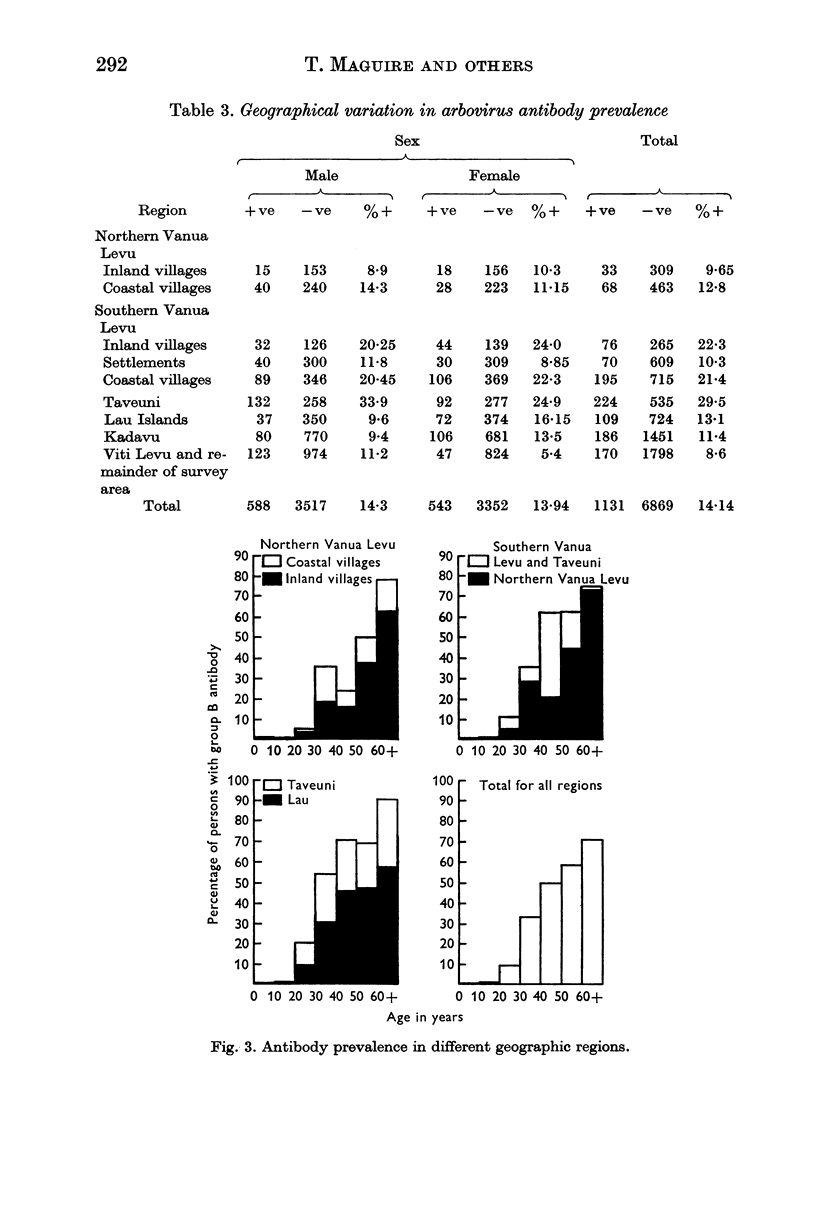
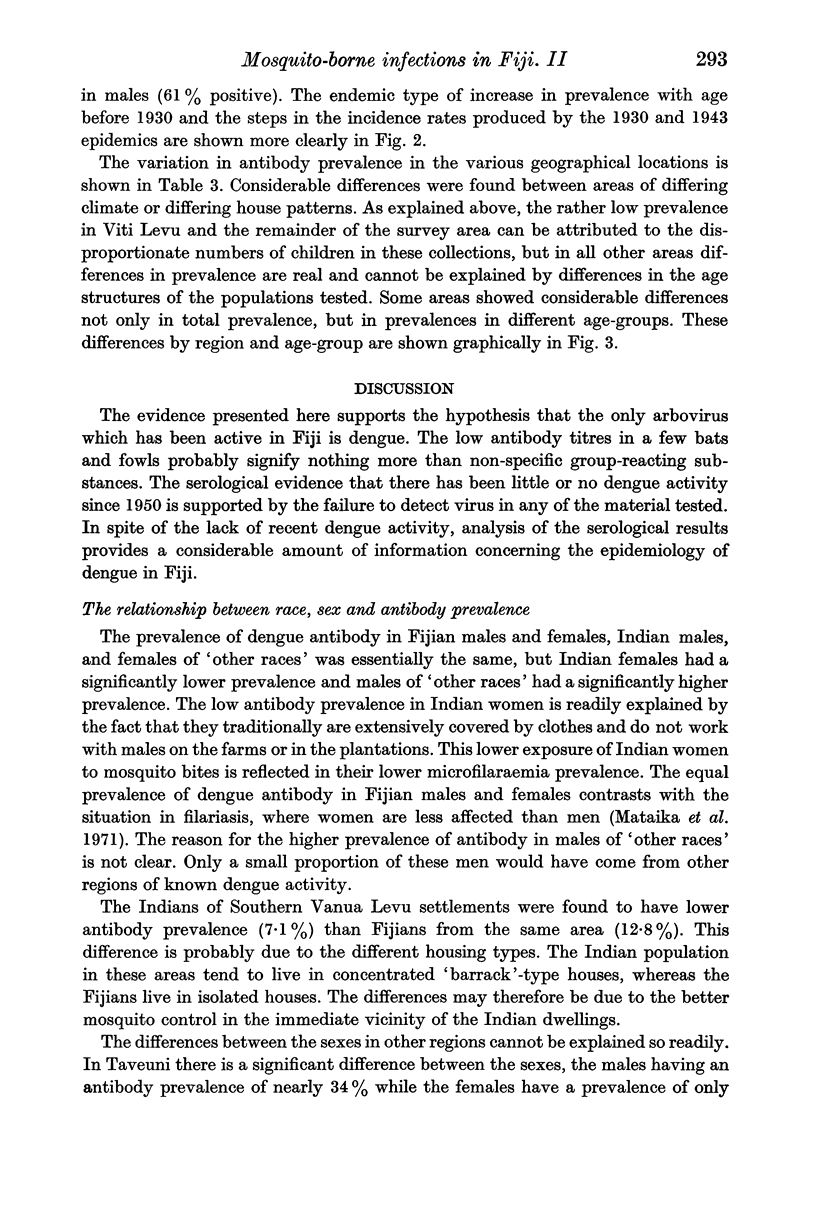
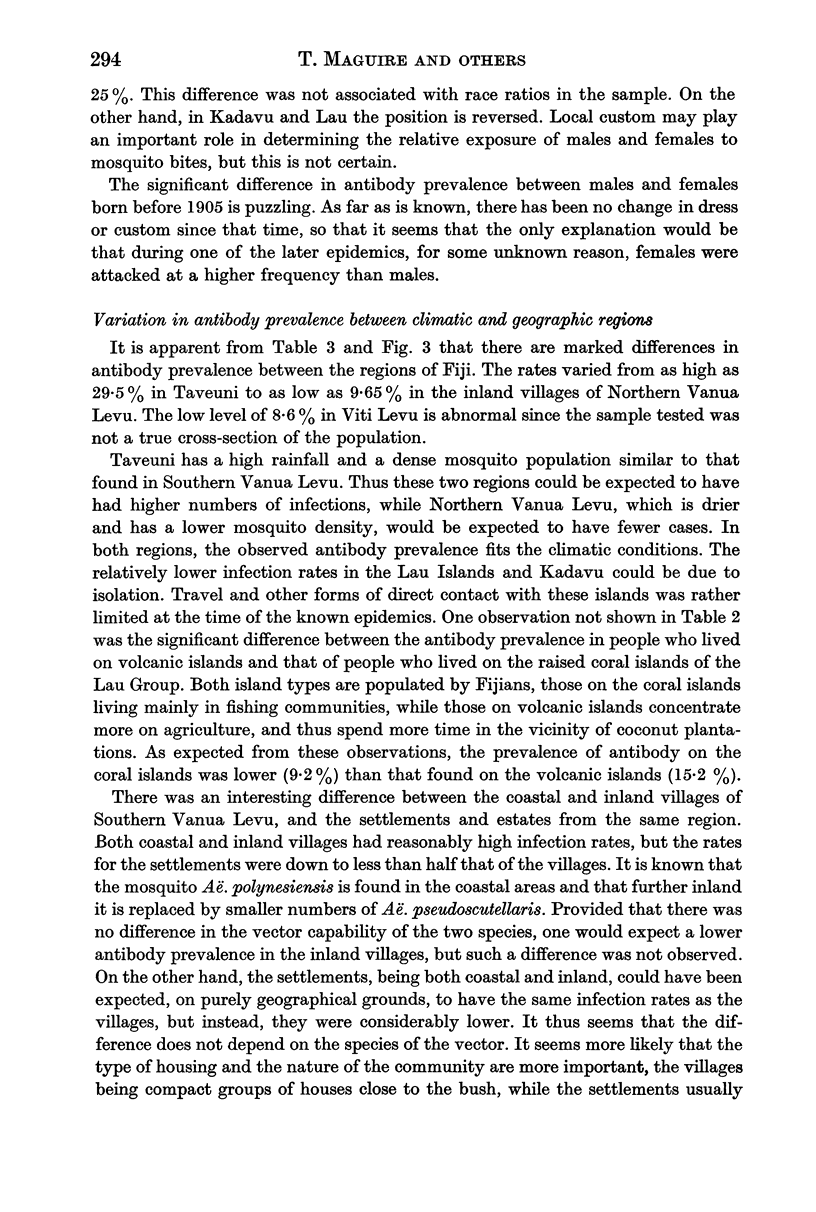
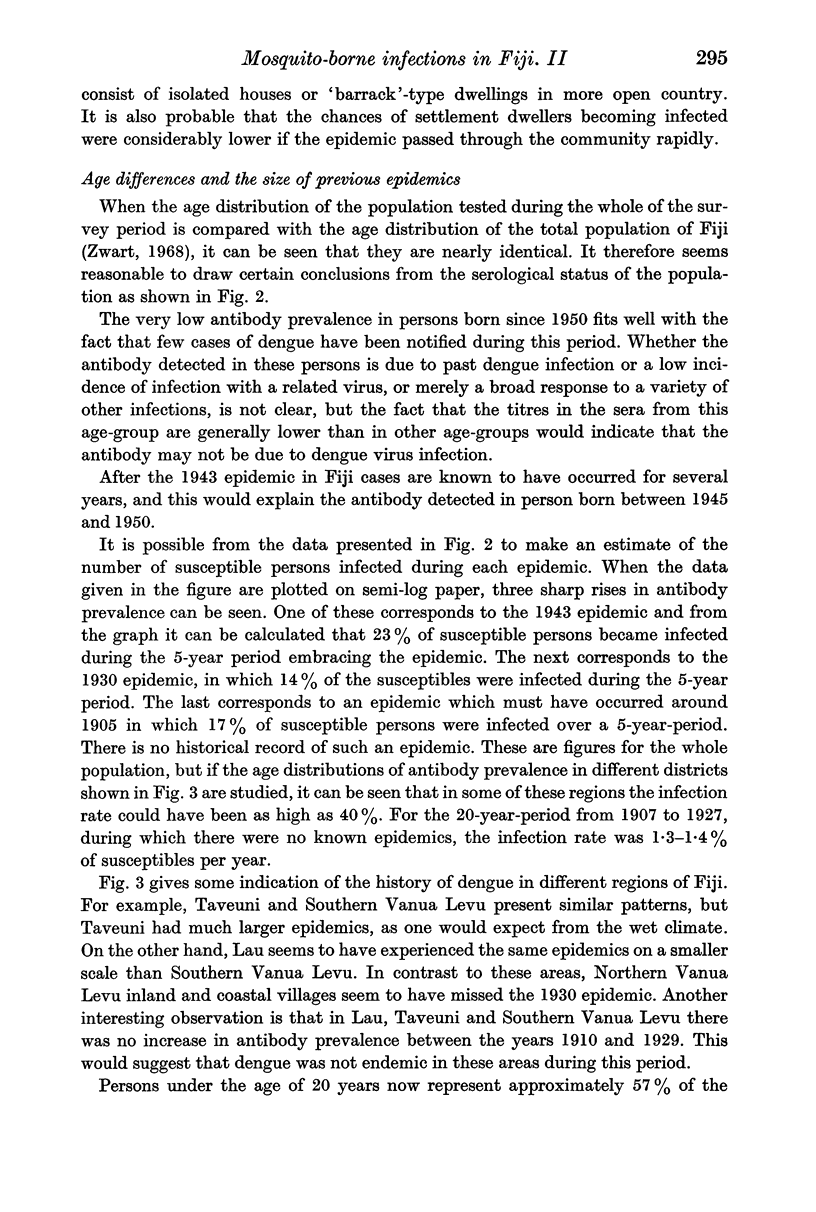
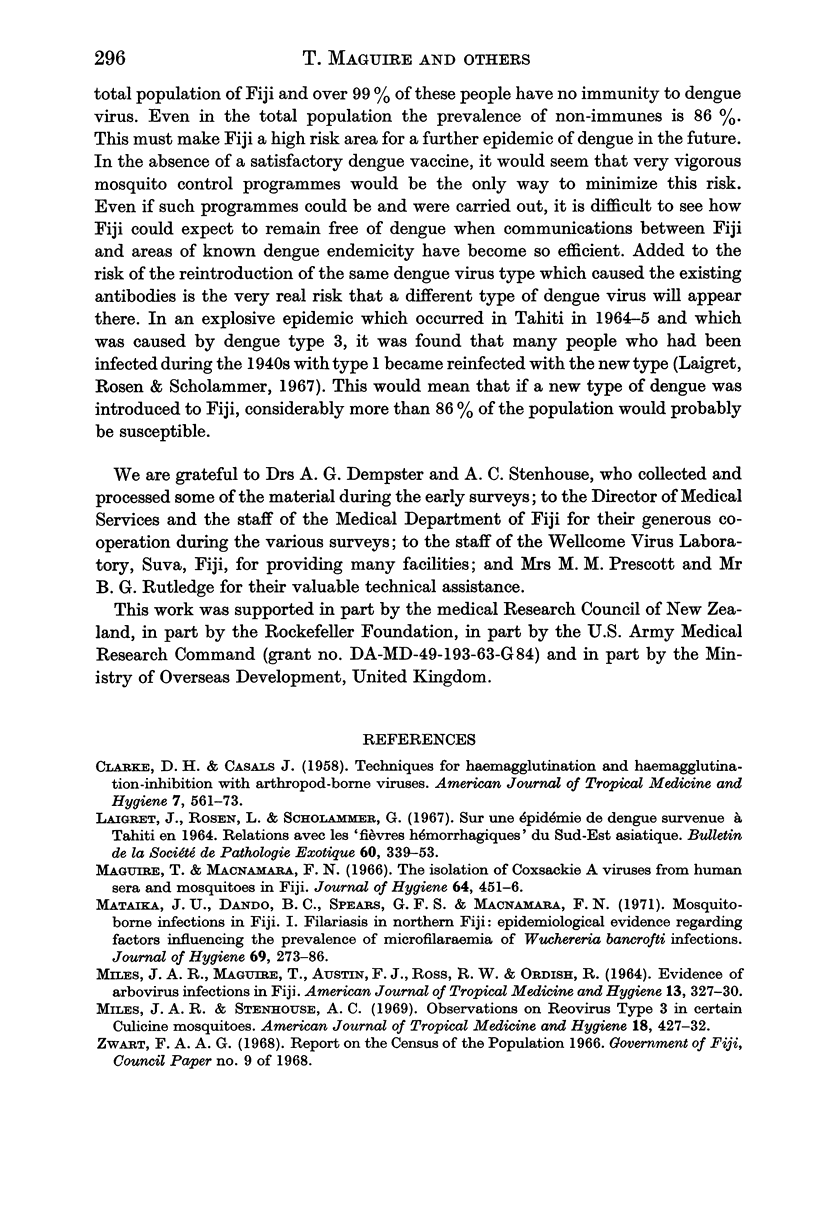
Selected References
These references are in PubMed. This may not be the complete list of references from this article.
- CLARKE D. H., CASALS J. Techniques for hemagglutination and hemagglutination-inhibition with arthropod-borne viruses. Am J Trop Med Hyg. 1958 Sep;7(5):561–573. doi: 10.4269/ajtmh.1958.7.561. [DOI] [PubMed] [Google Scholar]
- MILES J. A., MAGUIRE T., AUSTIN F. J., ROSS R. W., ORDISH R. EVIDENCE OF ARBOVIRUS INFECTION IN FIJI. Am J Trop Med Hyg. 1964 Mar;13:327–330. doi: 10.4269/ajtmh.1964.13.327. [DOI] [PubMed] [Google Scholar]
- Maguire T., Macnamara F. N. The isolation of Coxsackie A viruses from human sera and mosquitoes in Fiji. J Hyg (Lond) 1966 Dec;64(4):451–456. doi: 10.1017/s0022172400040754. [DOI] [PMC free article] [PubMed] [Google Scholar]
- Mataika J. U., Dando B. C., Spears G. F., Macnamara F. N. Mosquito-borne infections in Fiji. I. Filariasis in northern Fiji: epidemiological evidence regarding factors influencing the prevalence of microfilaraemia of Wuchereria bancrofti infections. J Hyg (Lond) 1971 Jun;69(2):273–286. doi: 10.1017/s0022172400021501. [DOI] [PMC free article] [PubMed] [Google Scholar]
- Miles J. A., Stenhouse A. C. Observations on reovirus type 3 in certain culicine mosquitoes. Am J Trop Med Hyg. 1969 May;18(3):427–432. doi: 10.4269/ajtmh.1969.18.427. [DOI] [PubMed] [Google Scholar]


